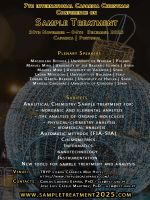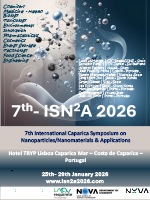Enterocin AP-7121: combination with colistin against human multi-drug resistant Gram-negative pathogens
DOI: 10.5584/jiomics.v9i2.296
Abstract
The significant prevalence of Gram-negative bacteria as health-care associated pathogens and their increased antimicrobial multi-drug resistance highlight the need for new therapeutic options. Colistin is a conventional antimicrobial currently employed for the treatment of nosocomial infections caused by multi-drug resistant Gram negative bacteria such as Pseudomonas aeruginosa and Acinetobacter baumannii complex with a main drawback, its toxicity. Doses of this drug, and its toxic effects, can be potentially reduced by using it combined with bacteriocins. AP-7121 is an enterocin produced by the probiotic strain Enterococcus faecalis CECT7121. The aim of this study was to investigate the synergistic activity of AP-7121 combined with colistin against multi-drug resistant Gram-negative pathogens. P. aeruginosa (n: 3) only susceptible to colistin and A. baumannii complex (n: 3) only susceptible to colistin and tigecycline were included. These human isolates were recovered from blood cultures (hemoculture) of patients with catheter-related bloodstream infections at the Intensive Care Unit (Hospital Ramon Santamarina de Tandil Argentina). Minimum Inhibitory Concentration (MIC) for AP, colistin, and colistin/AP-7121 combination against Gram-negative bacteria was assayed (micro-dilution method, CLSI 2018). In vitro bactericidal activity of AP alone or combined with colistin (MIC/4), for assessing a synergistic effect, was studied carrying out time-kill curves. Samples were obtained for viable cell counts (0, 4, 8 and 24 h). MIC and time-kill curves were carried out three times, in duplicate. Results were expressed as their average values. All isolates were resistant to AP (MICAP-7121 > 128 mg/L). Colistin showed anti-P. aeruginosa (MICcolistin 0.5 mg/L) and anti-A. baumannii complex (MICcolistin 0.5-1.0 mg/L) activity in each isolate. Colistin/AP-7121 Combination showed bactericidal activity against P. aeruginosa (MICcolistin/AP-7121 ≤ 0.06/11-0.12/16 mg/L) and A. baumannii (MICcolistin/AP-7121 ≤ 0.12-0.20/16 mg/L). A synergistic effect (colistin/AP-7121) was observed at 4-8 and 24 h for P. aeruginosa (-1.8 to -3.8 Δlog10 CFU/mL) and for A. baumannii complex isolates (-2.0 to -3.8 Δlog10 CFU/mL). AP-7121 is a candidate as an alternative option for the combination with colistin, against human P. aeruginosa and A. baumannii complex isolates producers of bloodstream infections. Their synergistic activity against these bacteria, leads to a bactericidal activity of AP, with lower MIC values and a potential reduction of colistin toxicity, to be thoroughly investigated.









